The Most Accessible Tea: Genmaicha
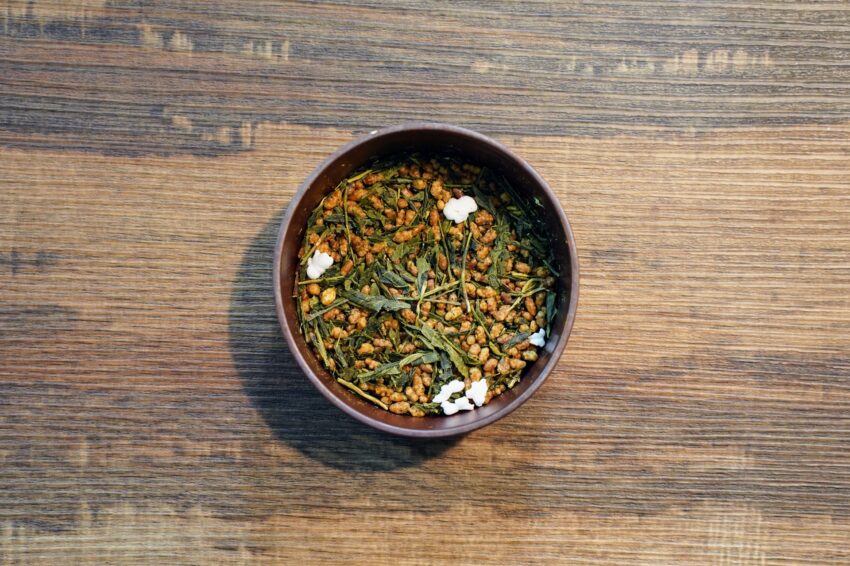
Top Photo: nekotaro-san on PhotoAC
One of the hardest habits for me to get used to after working regularly in Japan was drinking the morning tea with the entire office. I used to feel nauseous after drinking it on a relatively empty morning stomach due to the tannins. I didn’t want to offend the staff who poured it. I tried to remember how to make and pour it correctly myself when it was my turn to serve tea. I was initially not fond of green tea in Japan. Then one day I received a lovely gift after a delayed welcome party – a package of genmaicha.
Genmaicha is a Japanese tea that features roasted brown rice with some popped kernels. I had tried genmaicha in the past in the USA as a joke to try all of the “weird stuff” in a friend’s mother’s tea collection that we were ransacking in junior high school days. Don’t worry, we cleaned it up afterwards. I vaguely remember that the green tea looked like popcorn and tasted alright.
In any event, I had so many questions. Is it bitter? Internally I wondered, “Will it make me nauseous?” After pulling out the tea and scooping the suggested amount into the kyusu (a sort of teapot that came with my apartment), I noticed the roasted brown rice – and the popped kernels. After using rather hot water (the full 90 degrees), it tasted much milder than other green teas and was very gentle on the stomach. It was even soothing. It had the pleasant vegetal and sweet tastes of a sencha. But I really liked the flavor of the brown rice, which reminded me of unsweetened breakfast cereals or oatmeal.
It turns out that temperature is important when making green tea in any event to draw out the right flavors with each brewing while keeping yourself from pulling out excess tannins from your teas. You can brew the same tea multiple times for unique experiences – especially with high quality types like gyokuro teas. Using very hot water to brew gyokuro – especially for too long – will waste the flavors and make the drink unpleasant. There are all sorts of ideal temperatures and rules. Genmaicha is a little less complex.
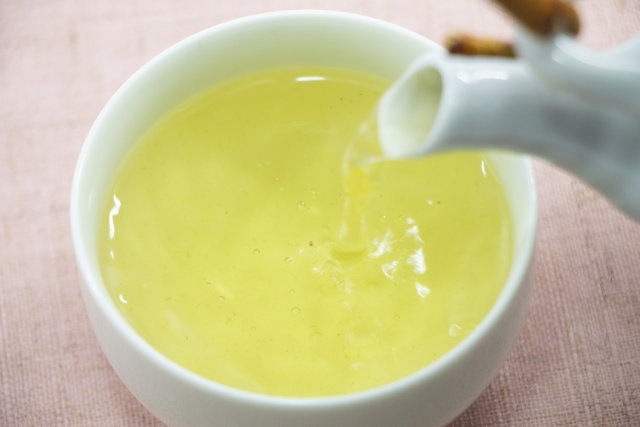
Photo by HiC
The high quality genmaicha that I received as a gift should actually have been brewed at around 80 degrees. As a general rule you can let this brew for about 60 seconds. Personally I’ve even brewed them for up to 90 seconds. But I would not exceed that length of time. Mass market brands may be fine to brew quickly at 90 or even 95 degrees for 30 to 60 seconds (typically at the lower end). Luckily genmaicha’s brown rice makes the whole tea drinking experience somewhat casual for a regular cup.
There are other rules regarding matcha genmaicha. This is another type of genmaicha which is made with matcha added. You can even enjoy bottled varieties from various brands such as Ito En. Ito En mixes matcha into their unsweetened, bottled genmaicha. This variety can also be enjoyed chilled (as can normal genmaicha).
There are many anecdotal stories regarding the origins of genmaicha. But one of the most noticeable claims is that it was created by tea sellers in the home field of Japanese green tea – Uji. Kyoto Uji Tea Hekisuien’s website claims that the company president Kishiro Horii “invented a blend of tea and rice in the Taisho era.” They say that they could not get a patent due to the simplicity of the manufacturing method. They further attest that they started to sell genmaicha in 1923 under their registered trademark “Hanayanagi.”
Now many manufacturers and tea brands make genmaicha. There are even guides for making your own genmaicha online. This could be fun for green tea lovers who know how to adjust to get their desired taste out of the drink.
If you’ve found the brewing of green tea to be difficult to master, want a mild and/or easy-to-make green tea that can be enjoyed daily, desire something to drink with friends that doesn’t require a tea brewing lesson, or simply want to try something new that’s easy on the stomach – then choose genmaicha!
Hekisuien’s website story regarding Hanayanagi genmaicha:
https://ujicha.co.jp/
Photo Credits:
Top Photo: nekotaro-san on PhotoAC
Additional photo by HiC
All other content (text) created by the original author and © 2023 MUSUBI by Borderlink
RELATED
-
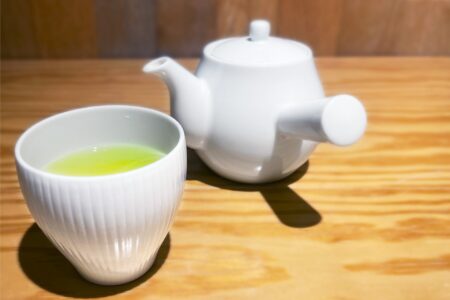
It’s Tea Time in Japan
Top photo: happyfoot on PhotoAC Before coming to Japan, I wasn’t the biggest fan of caffeinated drinks. I know… -
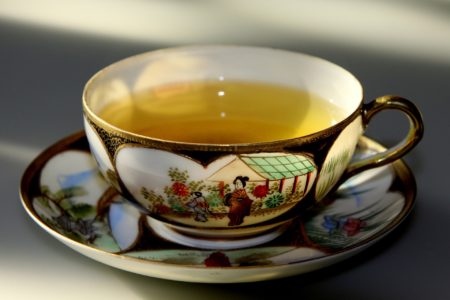
Quick Tips: Green Tea Time
Top Photo: chezbeate on Pixabay Tea. Wars have been fought over it. Revolutions have been waged because of it.… -
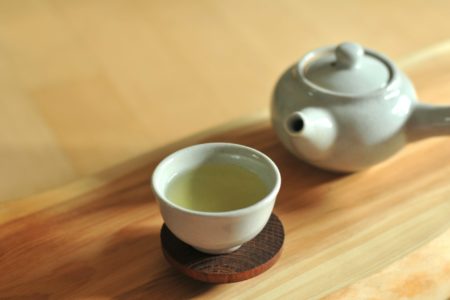
Tea: It Makes Everything Better!
Top Photo by Na visky on Unsplash Tea has been an important part of the culture and everyday life in Japan fo…
PEOPLE

W.O.
From the USA.
Has experienced Japan for 12 years!



